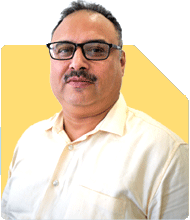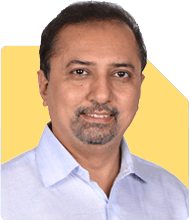I am a cabin crew in India. I am 28years old no savings yet. But loan of 3lakhs. Planning to clear all my loans in the next 8 months. After that all my earnings will be my savings. Also I am planning for some business. I am good at art work and cooking also I am a fashion designer. Please suggest me what business will be good for me..also I am completely alone noone to take care of me in future. And I have no backup. Whatever I have earned n I will earn infuture will be my only hope. Please suggest me how can I save also any business ideas.
Ans: Assessing Your Financial Situation
First, congratulations on your plan to clear your loans within the next 8 months. This shows a strong commitment to financial stability. With a clear focus on repaying your debt, you’re already on the right path.
Creating a Debt Repayment Plan
Prioritizing Loan Repayment
Prioritize paying off your Rs 3 lakh loan within the next 8 months. This means allocating a significant portion of your income towards this goal. Calculate the exact monthly payment needed to achieve this within your desired timeframe.
Budgeting Effectively
Create a detailed budget that outlines your income and expenses. Identify areas where you can cut back temporarily to ensure maximum loan repayment. This disciplined approach will accelerate your debt clearance.
Building an Emergency Fund
Importance of an Emergency Fund
Once your loan is cleared, the next step is to build an emergency fund. This fund should cover at least 6 months of living expenses. It provides a safety net in case of unforeseen circumstances, such as job loss or medical emergencies.
How to Save for an Emergency Fund
Set aside a fixed amount each month into a high-interest savings account until you reach your target. This fund should be easily accessible and separate from your regular savings.
Exploring Business Ideas
Given your skills in art, cooking, and fashion design, there are several business ideas that could be a good fit for you. Here are a few to consider:
Online Art Store
Use your artistic skills to create unique art pieces and sell them online. Platforms like Etsy or your own website can help you reach a wide audience.
Home-Based Bakery or Catering
If you enjoy cooking, consider starting a home-based bakery or catering service. You can begin with small orders for friends and family and gradually expand your customer base.
Fashion Design and Boutique
Leverage your fashion design skills to start a boutique. You can create custom designs and offer them through an online store or local market.
Creating a Business Plan
Market Research
Conduct market research to understand the demand for your products or services. Identify your target audience and competitors. This research will help you refine your business idea and develop a strong business plan.
Financial Planning for Business
Estimate the initial investment required for your business. This includes costs for materials, marketing, and other essentials. Plan how you will fund your business, whether through savings, loans, or other sources.
Saving and Investing for the Future
Systematic Investment Plan (SIP)
Once your emergency fund is in place, consider starting a SIP in mutual funds. SIPs allow you to invest a fixed amount regularly, which can grow significantly over time due to compounding.
Public Provident Fund (PPF)
PPF is a safe investment option with attractive interest rates and tax benefits. It’s suitable for long-term savings and helps build a secure financial future.
Recurring Deposits (RD)
RDs in banks allow you to save a fixed amount monthly with guaranteed returns. They are low-risk investments and help inculcate the habit of regular saving.
Diversifying Investments
Importance of Diversification
Diversification spreads your investments across different asset classes, reducing risk and enhancing returns. This approach ensures that poor performance in one asset class doesn’t significantly impact your overall portfolio.
Suggested Allocation
A balanced portfolio might include 50% in equity mutual funds for growth, 30% in debt mutual funds for stability, and 20% in fixed-income instruments like PPF or RD.
Regular Monitoring and Adjustment
Tracking Your Investments
Regularly monitor the performance of your investments to ensure they align with your financial goals. This helps in making informed decisions and necessary adjustments.
Rebalancing Your Portfolio
Rebalance your portfolio periodically to maintain the desired asset allocation. This involves selling over-performing assets and reinvesting in underperforming ones.
Financial Discipline
Consistent Saving and Investing
Consistency is key to successful saving and investing. Save and invest regularly, even if the amount is small. Over time, this disciplined approach will help in accumulating substantial wealth.
Avoiding Impulse Spending
Avoid impulse spending and prioritize your financial goals. This ensures that you have sufficient funds to save and invest regularly.
Importance of Financial Literacy
Educate Yourself
Invest time in educating yourself about financial markets and investment principles. This empowers you to make informed investment decisions.
Stay Updated
Stay updated with market trends and economic developments. This helps in understanding the impact of market movements on your investments.
Role of a Certified Financial Planner
Professional Guidance
A Certified Financial Planner (CFP) can provide personalized investment advice based on your financial goals and risk tolerance. They help in creating a comprehensive financial plan tailored to your needs.
Avoiding Common Investment Mistakes
Over-Reliance on a Single Asset
Avoid putting all your money into a single investment. Diversify your portfolio to spread risk and enhance returns.
Chasing High Returns
Chasing high returns often leads to taking excessive risks. Focus on creating a balanced portfolio that offers steady and sustainable returns.
Emergency Fund
Financial Cushion
Maintain an emergency fund to cover unexpected expenses. This prevents the need to dip into your long-term investments during emergencies.
Setting Realistic Expectations
Long-Term Perspective
Invest with a long-term perspective. While markets may fluctuate in the short term, they tend to offer good returns over the long term.
Patience and Discipline
Patience and discipline are crucial for successful investing. Stick to your investment plan and avoid making impulsive decisions based on market movements.
Investing in Your Future
Starting Early
Starting early gives you the advantage of time. The earlier you start investing, the more you benefit from compounding, resulting in substantial wealth accumulation over time.
Goal-Based Investing
Invest with specific goals in mind. Whether it's expanding your business, buying a house, or retirement, having clear goals helps in creating a focused investment strategy.
Risk Management
Understanding Risk
Understand the risks associated with different investment options. This helps in making informed decisions and choosing investments that match your risk tolerance.
Mitigating Risk
Mitigate risk by diversifying your investments across different asset classes. This ensures that poor performance in one asset class does not significantly impact your overall returns.
Tax Planning
Tax-Efficient Investments
Choose tax-efficient investments that offer deductions and exemptions under various sections of the Income Tax Act. This helps in maximizing your net returns.
Understanding Tax Implications
Understand the tax implications of your investments to plan effectively. This helps in optimizing your investment returns and minimizing tax liability.
Conclusion
Clearing your loan and focusing on savings and investments will set you on a path to financial stability. Leveraging your skills in art, cooking, and fashion design to start a business can provide an additional income stream. Create a diversified investment portfolio and invest regularly to build a secure financial future. Seek guidance from a Certified Financial Planner to develop a personalized financial strategy. Stay disciplined and informed to navigate your financial journey successfully.
Best Regards,
K. Ramalingam, MBA, CFP,
Chief Financial Planner,
www.holisticinvestment.in






























